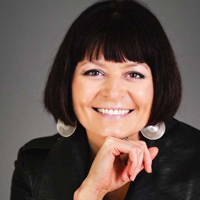The professional culture of STEM: Challenges and Possibilities
Abstract
What does the culture of Science, Technology, Engineering & Mathematics (STEM) have to do with inequality? Professional cultures of STEM, which give each discipline its 'feel' and unite discipline members under a taken-for-granted system of meanings and values, are not benign. Drawing from several US National Science Foundation-funded studies, articles, and my recent book, Misconceiving Merit, I argue that these professional cultures can have built within them intersectional inequalities along gender, race/ethnicity, and LGBTQ+ status. I discuss the role of three cultural ideologies - the Schema of Scientific Excellence, Depoliticization, and the Meritocratic Ideology - in producing these disadvantages. I will then discuss how we can interrupt these ideologies: how we can be vigilant about these ideologies in our organizations, how we check our own understanding of STEM excellence, and how we can cultivate a growth mindset around inclusion.
Biography
Erin A Cech is an Associate Professor in the Department of Sociology and Associate Professor by courtesy in the Department of Mechanical Engineering. Cech's research examines cultural mechanisms of inequality reproduction--specifically, how inequality is reproduced through processes that are not overtly discriminatory or coercive, but rather those that are built into seemingly innocuous cultural beliefs and practices. She investigates this puzzle through three avenues of research. First, she uses quantitative and qualitative approaches to examine inequality in science, technology, engineering and math (STEM) professions--specifically, the recruitment and retention of women, LGBTQ, and racially minoritized students and practitioners and the role of professional cultures in this inequality. Second, Cech examines how cultural definitions of 'good work' and 'good workers' can anchor inequality in the workforce. For example, she examines the role of the 'passion principle' in the reproduction of occupational inequalities: how seemingly voluntary and self-expressive career decisions help reproduce processes like occupational sex segregation. Finally, she studies how cultural understandings of the extent and origin of inequality help to uphold unequal social structures. Cech's research is funded by multiple grants from the National Science Foundation. Her research has been cited in The New York Times, The Washington Post, CNN, Time, The Guardian, Forbes, Chronicle of Higher Education and the news sections of Science and Nature. She has written op-eds in The Atlantic, Harvard Business Review, and The Conversation. In 2021, Cech received the Henry Russel Award, "the University of Michigan's highest honor for faculty at the early to mid-career stages of their career, conferred annually to faculty members who have demonstrated an extraordinary record of accomplishment in scholarly research and/or creativity, as well as an excellent record of contributions as a teacher."
